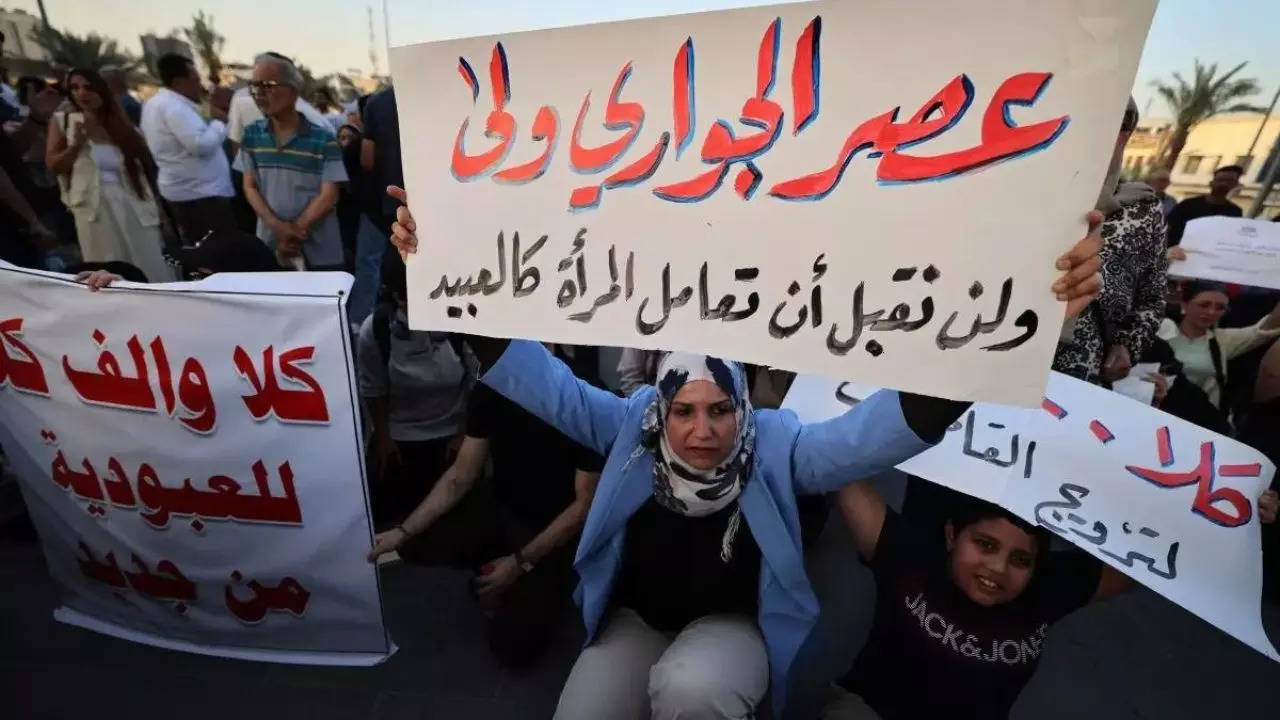For over ten years, the influential Shia religious factions that hold significant positions in Iraq’s political landscape have been actively working to undermine and curtail women’s rights in the nation.
Though unlike its neighbor, Saudi Arabia, Iraq does not enforce a male guardianship system that mandates women to obtain consent from their husband, father, or male guardian when making critical life decisions, including marriage.
However, a recent legislative initiative in Iraq has sparked concern among women’s rights advocates. The proposed law, which successfully passed the initial stage of approval in the country’s parliament, would grant religious leaders the authority to make decisions regarding family matters, such as marriage, divorce, and child custody.
Currently, the law in Iraq says that people must be at least 18 to get married. However, the new law, proposed by the Iraq justice ministry, would let people choose whether to follow religious rules or the civil court system for family matters.
Raya Faiq, the coordinator of a coalition of organizations opposing the potential legal change, said, “This is a catastrophe for women.” “My husband and my family oppose child marriage. But imagine if my daughter gets married and my daughter’s husband wants to marry off my granddaughter as a child. The new law would allow him to do so. I would not be allowed to object. This law legalises child rape,” The Guardian reported.
Supporters of the recently enacted law in Iraq faced off against those who opposed it during demonstrations held by the coalition in Baghdad and other Iraqi cities this week. The proponents of the law accused their opponents of “moral decadence” and “following western agendas” during these protests.
Despite the fact that Iraq has prohibited marriage for individuals under 18 since the 1950s, one Unicef survey revealed that 28 per cent of Iraqi girls had entered into marriage before reaching the age of 18.
The Coordination Framework, a political coalition of factions aligned with Iran, has held domination over the Iraqi political system since 2021.
This coalition has enacted several laws oriented towards sharia, including the adoption of religious holidays and the criminalisation of gay and transgender people in Iraq.
“Following the mass youth protests which took place in Iraq in 2019, these political players saw that the role of women had begun to strengthen in society,” said Co-founder of the Iraq-based Aman Women’s Alliance, Nadia Mahmood, The Guardian reported.
“They felt that feminist, gender and women’s organisations, plus civil society and activist movements, posed a threat to their power and status … [and] began to restrict and suppress them,” Nadia added.
A group of 25 women in the Iraqi parliament have been working to prevent the draft law from being voted on again, but said they face strong opposition.
According to The Guardian Alia Nassif, a member of the Iraqi parliament, said: “Unfortunately, male MPs who support this law speak in a masculine way, asking what’s wrong with marrying a minor? Their thinking is narrow minded. They don’t take into consideration that they are the legislators that determine people’s fate … but rather follow their masculine thinking to authorise all this.”
Protesters expressed their fear about the consequences of the proposed legal amendments on their children and their future. I have one daughter, I don’t want her to be forced like me to marry as a child,” said Azhar Jassim, who had to leave school to be married aged 16.
What does Iraq’s proposed law states?
The new law sought to change the Law 188 of the Personal Status Law of 1959, which took family law decisions away from religious leaders and gave that power to the state courts. The proposed law would allow people to follow religious rules, mostly from Shia and Sunni Islam, but it doesn’t mention other religious groups in Iraq.
Supporters of the bill say it would make Islamic law more consistent and protect young girls from inappropriate relationships. However, opponents argue that this reasoning overlooks the dangers of child marriage. They believe that letting religious leaders decide on marriage could harm the principle of equality under Iraqi law and would allow girls as young as nine to be married, taking away their futures and well-being.






